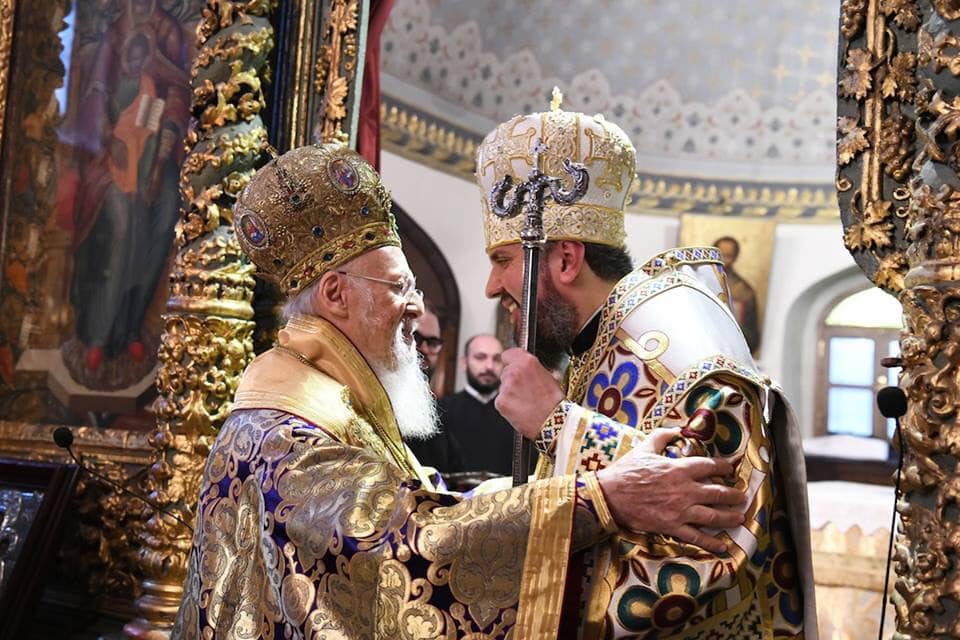Ecumenical Patriarch Bartholomew referred to the decision of the Ecumenical Patriarchate to grant an autocephaly status to Ukraine while he welcomed today some journalists from Ukraine, Friday, May 31, at the Phanar. Metropolitan Emmanuel of France also attended the meeting.
The Ecumenical Patriarch said in English that “in order to confront the schism and promote unity among the Orthodox in Ukraine, the Ecumenical Patriarchate responded to the numerous demands of the presidents, political authorities and faithful of Ukraine, by deciding to finally grant the desired autocephaly status,” he said.
The Ecumenical Patriarch, inter alia, underlined:
“It is a longstanding issue in Ukraine. There was a schism that had to be dealt with. Regarding the granting of the autocephaly status to the Orthodox Church in Ukraine, the same procedure was followed in which independence was granted to all the newly established Churches.
Regarding Filaret, his episcopal significance was recognized under the title of the former Metropolitan of Kiev. The so-called “Patriarchate of Kiev” does not exist and has never existed. Now that autocephaly has been granted, we also believe that it is the responsibility of the primate of the Orthodox Church of Ukraine, Metropolitan Epiphanius, lead this historic Church, by strengthening the unity of the Ukrainian people and making the gift of freedom a means of spreading the good news of the New Testament.
Immediately thereafter, the Ecumenical Patriarch received a group of pilgrims from the Parish of Saint George and Alina in Dilbeek from the Metropolis of Belgium. In his speech, he praised the work of Metropolitan Athenagoras of Belgium and his predecessor, Metropolitan Panteleimon, and announced that he would visit the Metropolis next November for the celebrations of the 50th anniversary since its foundation.
“This is the coordinating center of World Orthodoxy,” he said referring to the role of the Ecumenical Patriarchate. He added: “This does not mean that we do not have any problems from time to time with the other Orthodox Churches. It is our duty to overcome these difficulties, however much depends on us, and to continue on the same path, the common struggle for Orthodoxy in the modern world. “
He also referred to the difficulties encountered by the Patriarchate and the Greek community in Constantinople in the past.
“Even though there are few left in Constantinople, we have a high sense of responsibility, to preserve all the sacrosanct of our nation, to keep our churches and other charitable institutions open, in operation with the Greek nobility, like we have inherited from our fathers. The future is in the hands of God, we humanely do what we can. With our prayer, the rest is in the hands of God.”
